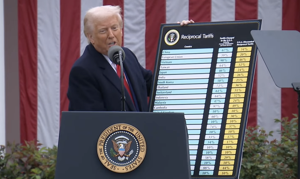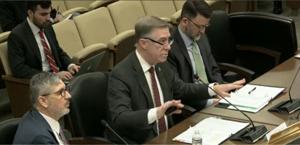(The Center Square) – California’s $35 billion high speed rail project for its sparsely populated Central Valley requires at least a $7 billion bailout to be done by 2033.
The Trump administration is investigating federal funding of the project, and a bill in Congress could end further federal funding for the project entirely.
“There is a funding gap of roughly $7 billion for completing the Merced-to-Bakersfield segment,” wrote the state-funded Legislative Analyst’s Office. “Other factors could drive growth in the project’s funding gap, including: (1) potential loss of federal funds, such as those that have not yet been obligated; (2) inflation and other construction cost increases; (3) uncertainty related to assumed future [state Greenhouse Gas Reduction Fund] revenues.”
The LAO also noted the California High Speed Rail Authority Office of the Inspector General said, “HSRA needs to secure funds to meet most of its identified funding gap before June 2026 to avoid negative impacts on the Merced-to-Bakersfield segment schedule.”
The Trump administration’s Secretary of Transportation Sean Duffy cited the new shortfall in a X post highlighting the status of the state’s long-delayed Los Angeles to San Francisco train, which was approved by voters in 2008 at a cost of $33 billion.
Duffy said that of $15 billion spent on the project thus far, $2.5 billion was from federal funding and that $4 billion in “unspent federal money is under review.” He also said “zero high-speed track” has been laid and that the total cost for the LA-SF line “has soared to over $100B with no expected completion date.”
He said he will “continue to investigate this project to determine how exactly federal dollars have been used and whether federal support should continue.”
Should a bill proposed by U.S. Rep. Kevin Kiley, R-California, pass, the project would not be eligible for future federal funding.
“The CA High-Speed Rail disaster has somehow gotten even worse,” said Kiley. “I’ve introduced legislation to cut off all federal funding and end the project for good.”
On his nationally syndicated iHeartRadio podcast “This is Gavin Newsom,” California Gov. Gavin Newsom was challenged by a guest, New York Times columnist Ezra Klein, about the state’s delays and cost overruns building the project.
“At the end of the day, we’ve got these constraints that are well established and existing constraints,” responded Newsom, who hosts the podcast. “There’s not a high-speed rail system that doesn’t have some popularity and success. Most are wildly popular. It’s an experience no one has had in the United States of America. At least we’re out there daring.”
At the state level, Republican lawmakers have responded to the lack of a plan on how to fund the rest of the first leg of the project by proposing a bill to require HSRA to provide such a plan.
The bill, AB 377, unanimously passed the Assembly Transportation Committee with full bipartisan support and now heads to the Appropriations Committee.
“Without a clear financial roadmap, the project risks leaving Fresno with an incomplete, unusable infrastructure — a modern-day Stonehenge,” said bill author Assemblyman David Tangipa, R-Fresno, through whose district the train would run. “By statutorily requiring a funding plan, AB 377 forces accountability before more taxpayer money is wasted on government mismanagement.”




















































